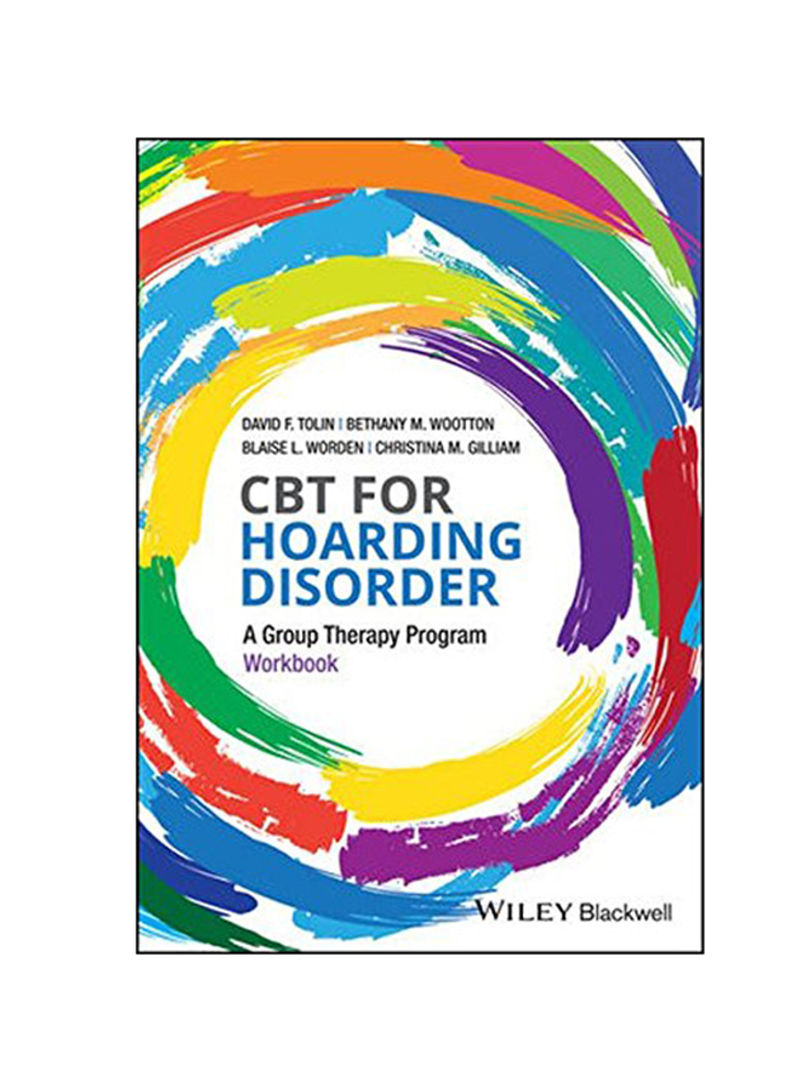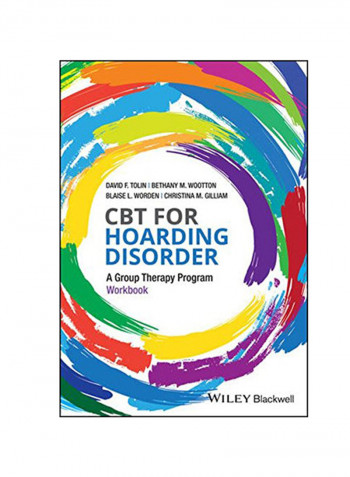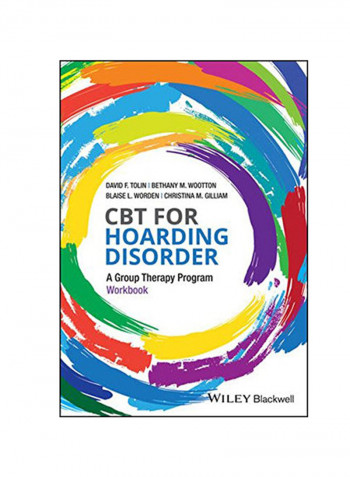CBT For Hoarding Disorder: A Group Therapy Program Workbook Paperback
Recommend
Sort by
Rating
Date
Specifications
Author 1
David Tolin
Book Description
Part of a two-component product with a companion therapist's guide, CBT for Hoarding Disorder: Client Workbook guides patients struggling with hoarding disorder who are enrolled in a comprehensive CBT group program through the therapeutic process of addressing and overcoming their difficulties. Designed for participants in group cognitive-behavioral therapy for hoarding disorder - an evidence-based program created by experts in the field Helps readers to work on the many factors that contribute to ongoing difficulties with clutter, in order to learn how to make quicker, more efficient decisions that are less stressful and draining. Addresses many of the barriers to successful decluttering, such as time management, organizational skills, and problem-solving Shows that while living with hoarding disorder can be frustrating, both for the sufferer and for family and friends, there is a way forward and nobody has to live with clutter.
ISBN-10
1119159245
ISBN-13
9781119159247
Language
English
Publisher
John Wiley & Sons Inc
Publication Date
08 Sep 2017
Number of Pages
176
About the Author
David F. Tolin is Founder and Director of the Anxiety Disorders Center at The Institute of Living, USA, and an Adjunct Professor of Psychiatry at Yale University School of Medicine. He was the 2014 President of the Clinical Psychology division of the American Psychological Association, and is a recipient of the Award for Lifetime Contribution to Psychology from the Connecticut Psychological Association. An internationally recognized expert in the study and treatment of hoarding disorder, Dr. Tolin is the author of over 150 scientific journal articles and several books. He was a featured expert on the A&E series Hoarders, hosted the VH-1 series The OCD Project, and has been a recurrent guest on programs such as The Dr. Oz Show and The Oprah Winfrey Show. Bethany M. Wootton is a clinical psychologist and Senior Lecturer in Clinical Psychology at the University of New England, Australia. She has an interest in the treatment of anxiety and related disorders. Her research focuses on the development and evaluation of remote treatments in order to improve access to evidence-based treatments for these conditions. Blaise L. Worden is a clinical psychologist at the Anxiety Disorders Center at the Institute of Living, USA, where she runs and directs cognitive-behavioral treatment groups for hoarding disorder. She has co-authored book chapters on the phenomenology of both hoarding and obsessive-compulsive disorder, and provides educational talks to community organizations about HD treatment. Christina M. Gilliam is a clinical psychologist and Director of Educational Programs at the Anxiety Disorders Center at the Institute of Living, USA. She is an expert in providing and training others in cognitive behavioral therapy for anxiety disorders, obsessive compulsive and related disorders, and she has published journal articles and book chapters in these areas.
Author 2
Bethany M. Wootton
Author 3
Blaise L. Worden
Author 4
Christina M. Gilliam
Editorial Review
You don't have to live with clutter. Living with hoarding disorder can be frustrating, both for the sufferer, and for family and friends. The clutter may prevent you from using your furniture, tables, or rooms. You may lose important items, feel overwhelmed by the chaos, and feel embarrassed about having others in your home. If you part with belongings, you may feel wasteful, guilty, or sad; and even deciding which belongings to part with or where to begin can be a struggle. You may acquire more objects than you need or can afford. You may find that the problem is leading to conflict between you and others. The CBT for Hoarding Disorder program has been shown to be helpful for those who save excessively and have difficulty discarding items. This Client Workbook is designed for people who are participating in group cognitive-behavioral therapy for hoarding disorder. This scientifically-supported program was created by psychologists experienced in the study and treatment of hoarding. The program will help you work on the many factors that contribute to ongoing difficulties with clutter. You will learn how to make quicker, more efficient decisions that are less stressful and draining. You will learn how to boost your motivation for decluttering and maintain it in the long run. The program also addresses many of the barriers to successful decluttering, such as time management, organizational skills, and problem-solving. Over time you should feel more comfortable making decisions about whether to keep or discard your possessions, and should see visible progress in decluttering your home!



